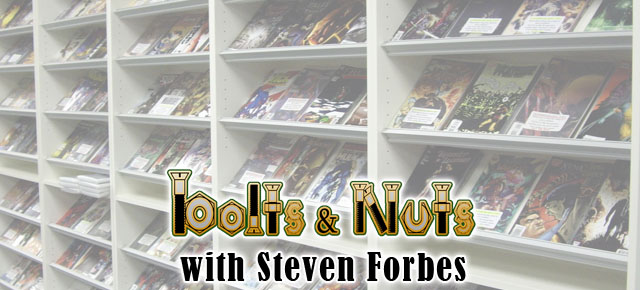B&N Week 134: Snobbery
Welcome to another wonderful Tuesday! It’s monsoon season here in Tucson, and we’ve got thunderstorms predicted for the day. [Just heard some rumbling, to tell the truth.] Well, technically, they’re no longer considered monsoons in this area. Because of some years without a buttload of rain, we’ve been downgraded to seasonal heavy rains. People still call them monsoons, though. Toe-may-toe, toe-mah-toe, yes? [Maybe. Your mileage may vary.]
What I want to talk about this week is being a snob. First, let’s look at a definition, so that we’re all on the same page. Merriam-Webster.com defines snob as 3a: one who tends to rebuff, avoid, or ignore those regarded as inferior, and 3b: one who has an offensive air of superiority in matters of knowledge and taste. Most of the time in today’s society, people use the latter definition of the word.
Being a snob in comics is a tough row to hoe. It can be done, but you may be limiting yourself if you pursue this path. There are lots of things that can go wrong with your career because of it.
Face it: most creators have caviar tastes on a dollar menu budget. This is the way of the world. We want to hire someone like Jim Lee, but instead we hire James Leigh, because that’s what we can afford.
It is much easier for a writer to be a snob about who they will and will not work with. One glance at the art, colors, or letters, and you’ve already seen everything you need to know. And creators are all over the place, vying for the attention paying work can bring. Most are just not ready, and some are on the cusp. Others are damned good at what they do, but they price themselves out of contention for our meager pockets. This leaves a narrow band of creators that are both good and priced accordingly to our pockets.
Understand this, folks: unless it’s a straight collaboration, where both parties are co-creators and this has been formally laid out, agreed upon and accepted, then you’re going to be giving a creator money at one point or another. [Usually sooner than later. When it’s a collaboration, the money comes later.] This means you get to be somewhat picky about who you work with. You’re paying them, after all.
Like I said, it is easy to do this with visual art. Pencils, inks, colors, letters. Snobbery is easy to come by for these. For writing? Snobbery is more difficult. It’s more difficult to assess a script than it is a fully produced comic. And I’ll be the one to say it: most of the scripts I’ve seen don’t deserve to be produced, because it would be a waste of time, effort, and money. (Harsh, much?) [Maybe, but that doesn’t mean it isn’t true.]
The best way for writers to be seen is to make a comic. However, making a bad comic only reinforces the perception of bad writing. The next best way is to post a script up on a message board, but those are generally very small venues, frequented by other [usually newer] creators. It becomes a catch-22 for writers.
It’s even worse for editors. Let me tell you: being a new editor sucks. If you don’t have credits underneath you, you have to work long and hard to show you’re capable, knowledgeable, and you also have to show personality traits that say you’re worthy. Now, let’s say you have an award winning book under your belt as an editor—you still have to have worked at Marvel/DC before most [newer] creators will give you the time of day.
It’s all about snobbery.
How do you combat it?
Generally, you don’t. Most of the time, you have to live with it, because it is a matter of taste. When it comes to the visual aspects, you like what you like, and it is difficult to break out of your taste. For writing, it’s more difficult. Becoming a fan of the writer is more of a challenge. You become enamored with the story more than the writer.
Is being a snob a good thing? On the whole, I’d say yes. The reason is simple. Quality. Being a snob should inject some measure of quality to the project, whether or not you have an editor. That quality should help the book. I like to think of it as a secret ingredient to creating. It’s an intangible, like excitement or love. You can feel it on the page.
What are you snobbish about? Let’s discuss it in the forum.
See you in seven.
Related Posts:
Category: Bolts & Nuts

















